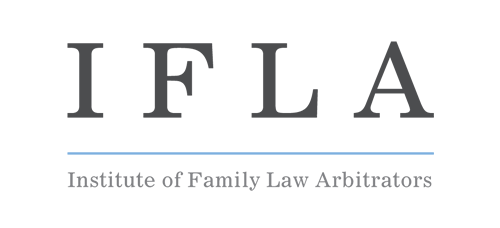English Family Law goes Arbitral
Posted: 23 Apr 2012

On 22 February 2012 an innovative Arbitration Scheme for financial disputes was launched by the new-formed Institute of Family Law Arbitrators (IFLA). Its stakeholders are Resolution (formerly the Solicitors Family Law Association), the Family Law Bar Association and the Chartered Institute of Arbitrators (CIArb) in association with London Metropolitan University's Centre for Child and Family Law Reform.
Family law has hitherto been regarded as off-limits for arbitration in England and Wales. This fully-formulated and accredited arbitration scheme is designed to offer a totally confidential, speedy and determinative option to the court procedure. The IFLA Scheme operates within the framework established by the English Arbitration Act 1996 and upholds and applies its mandatory requirements.
Although it is a fundamental condition of an arbitration under the IFLA Scheme that English law is the law to be applied, this mode of ADR may be of interest to IAML Fellows outside England in a situation where their client has an English background or roots and/or where the English court has or may have jurisdiction to entertain divorce proceedings and to make financial orders. Thus, for example, arbitration may be an attractive option for expatriate English spouses living in, say, Hong Kong or the UAE to resolve a single preliminary but potentially determinative issue relating to the status of a disputed gift/loan, or the disputed ownership (by one spouse or a third party or a trust) of land or other property.
The parties can select their arbitrator and agree terms with him or her. They then bind themselves to accept the outcome and, if necessary or appropriate, to co-operate in obtaining a court order reflecting the terms of the arbitrator's award. It is anticipated (but cannot at this stage be guaranteed) that an English judge before whom such a request comes will regard the circumstances outlined above as outweighing any other considerations, and will without much or indeed any ado make an order in terms of the award. But in any event, the parties are contractually bound.
A highlight of the arbitral process is its versatility. The parties choose and define the issues they wish to have arbitrated (which may range from a single issue dispute as to beneficial ownership of a property up to a full-scale all-issues financial fracas). They retain very considerable autonomy as to the manner in which the arbitration is conducted (evidence, witnesses, on-paper or after a hearing, and so on). In default of agreement as to aspects of the process to be adopted the arbitrator has power to decide, as would a judge. Throughout the whole of the process they retain the support of their respective legal teams.
40 specialist members of the profession (solicitors, barristers, and 2 retired Family Division judges) have undertaken a course of training established by CIArb. Those who have been successful have become Members of CIArb and are subject therefore to its code of conduct and disciplinary procedures. Members' names and contact details appear on the panel of available arbitrators to be found on the IFLA website, www.IFLA.org.uk. On the same site are to be found copies of the Scheme Rules governing the arbitration as well as an application form and further information relating to the scheme.
The names of a number of IAML Fellows are to be found on IFLA's list of Accredited Arbitrators.
Sir Peter Singer
